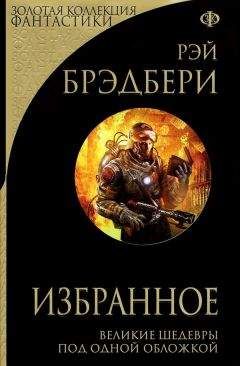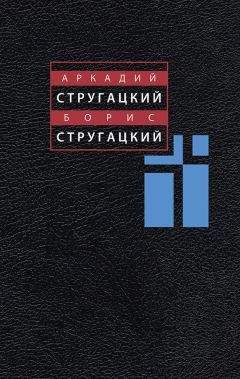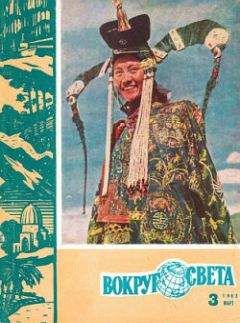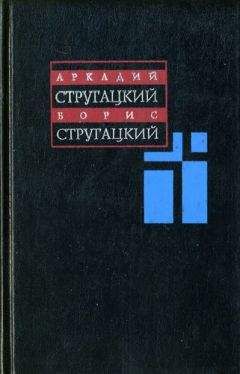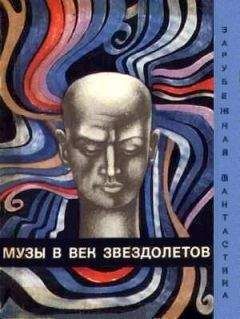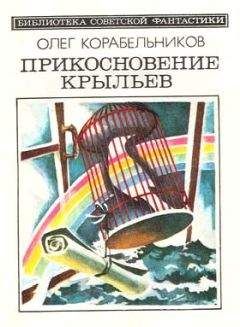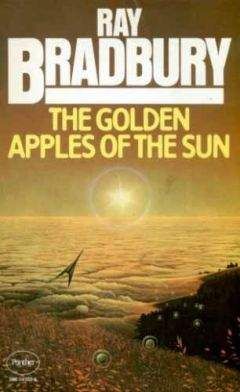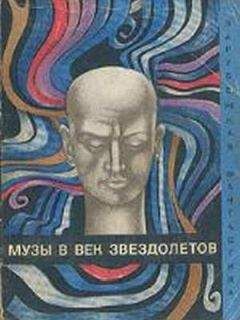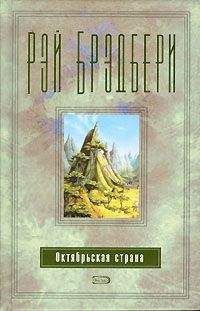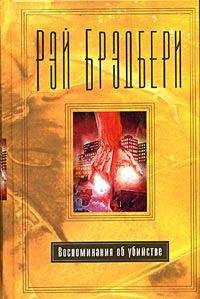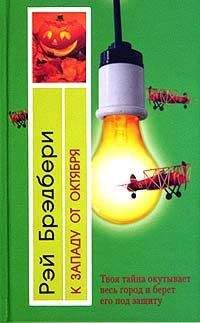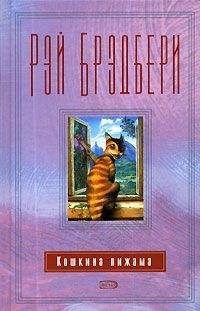Рэй Бредбери - Октябрьская страна (The October Country), 1955
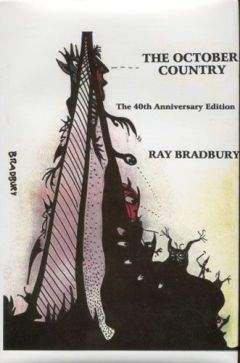
Скачивание начинается... Если скачивание не началось автоматически, пожалуйста нажмите на эту ссылку.
Жалоба
Напишите нам, и мы в срочном порядке примем меры.
Описание книги "Октябрьская страна (The October Country), 1955"
Описание и краткое содержание "Октябрьская страна (The October Country), 1955" читать бесплатно онлайн.
И вновь сборник «ужастиков» раннего Брэдбери, разбавленных поздними житейско-психологическими историями («Прикосновение пламени»). Из ранних своих запасов писатель извлёк на свет настоящие жемчужины: такие как «Озеро» и «Коса».
"This," he remarked, "is a beautiful little town."
"Bougainvillea climb all over the buildings-" she said.
"These-" he pointed to some flowers at the window "-are bougainvillea."
"-and we'd fish, you like fishing," she said in bright haste. "And I'd fish, too, I'd learn, yes I would, I've always wanted to learn! And they say the Tarascan Indians there are almost Mongoloid in feature, and don't speak much Spanish, and from there we could go to Paracutin, that's near Uruapan, and they have some of the finest lacquered boxes there, oh, it'll be fun, Joe. I'll pack. You just take it easy, and-"
"Marie."
He stopped her with one word as she ran to the bathroom door.
"Yes?"
"I thought you said you didn't feel well?"
"I didn't. I don't. But, thinking of all those swell places-"
"We haven't seen one-tenth of this town," he explained logically. "There's that statue of Morelos on the hill, I want a shot of that, and some of that French architecture up the street … we've traveled three hundred miles and we've been here one day and now want to rush off somewhere else. I've already paid the rent for another night…."
"You can get it back," she said.
"Why do you want to run away?" he said, looking at her with an attentive simplicity. "Don't you like the town?"
"I simply adore it," she said, her cheeks white, smiling. "It's so green and pretty."
"Well, then," he said. "Another day. You'll love it. That's settled."
She started to speak.
"Yes?" he asked.
"Nothing."
She closed the bathroom door. Behind it she rattled open a medicine box. Water rushed into a tumbler. She was taking something for her stomach.
He came to the bathroom door. "Marie, the mummies don't bother you, do they?"
"Unh-unh," she said.
"Was it the funeral, then?"
"Unh."
"Because, if you were really afraid, I'd pack in a moment, you know that, darling."
He waited.
"No, I'm not afraid," she said.
"Good girl," he said.
The graveyard was enclosed by a thick adobe wall, and at its four corners small stone angels tilted out on stony wings, their grimy beads capped with bird droppings, their hands gifted with amulets of the same substance, their faces unquestionably freckled.
In the warm smooth flow of sunlight which was like a depthless, tideless river, Joseph and Marie climbed up the hill, their shadows slanting blue behind them. Helping one another, they made the cemetery gate, swung back the Spanish blue iron grille and entered.
It was several mornings after the celebratory fiesta of El Dia de Muerte, the Day of the Dead, and ribbons and ravels of tissue and sparkle-tape still clung like insane hair to the raised stones, to the hand-carved, love-polished crucifixes, and to the above-ground tombs which resembled marble jewel-cases. There were statues frozen in angelic postures over gravel mounds, and intricately carved stones tall as men with angels spilling all down their rims, and tombs as big and ridiculous as beds put out to dry in the sun after some nocturnal accident. And within the four walls of the yard, inserted into square mouths and slots, were coffins, walled in, plated in by marble plates and plaster, upon which names were struck and upon which hung tin pictures, cheap peso portraits of the inserted dead. Thumb-tacked to the different pictures were trinkets they'd loved in life, silver charms, silver arms, legs, bodies, silver cups, silver dogs, silver church medallions, bits of red crape and blue ribbon. On some places were painted slats of tin showing the dead rising to heaven in oil-tinted angels' arms.
Looking at the graves again, they saw the remnants of the death fiesta. The little tablets of tallow splashed over the stones by the lighted festive candles, the wilted orchid blossoms lying like crushed red-purple tarantulas against the milky stones, some of them looking horridly sexual, limp and withered. There were loop-frames of cactus leaves, bamboo, reeds, and wild, dead morning-glories. There were circles of gardenias and sprigs of bougainvillea, desiccated. The entire floor of the yard seemed a ballroom after a wild dancing, from which the participants have fled; the tables askew, confetti, candles, ribbons and deep dreams left behind.
They stood, Marie and Joseph, in the warm silent yard, among the stones, between the walls. Far over in one comer a little man with high cheekbones, the milk color of the Spanish infiltration, thick glasses, a black coat, a gray hat and gray, unpressed pants and neatly laced shoes, moved about among the stones, supervising something or other that another man in overalls was doing to a grave with a shovel. The little man with glasses carried a thrice folded newspaper under his left arm and had his hands in his pockets.
"Buenos diaz, senora y senor!" he said, when he finally noticed Joseph and Marie and came to see them.
"Is this the place of las mommias?" asked Joseph. "They do exist, do they not?"
"Si, the mummies," said the man. "They exist and are here. In the catacombs."
"Por favor," said Joseph. "Yo quiero veo las mommias, si?"
"Si, senor."
"Me Espanol es mucho estupido, es muy malo," apolo-gized Joseph.
"No, no, senor. You speak well! This way, please."
He led between the flowered stones to a tomb near the wall shadows. It was a large flat tomb, flush with the gravel, with a thin kindling door flat on it, padlocked. It was unlocked and the wooden door flung back rattling to one side. Revealed was a round hole the circled interior of which contained steps which screwed into the earth.
Before Joseph could move, his wife had set her foot on the first step. "Here," he said. "Me first."
"No. That's all right," she said, and went down and around in a darkening spiral until the earth vanished her. She moved carefully, for the steps were hardly enough to contain a child's feet. It got dark and she heard the caretaker stepping after her, at her ears, and then it got light again. They stepped out into a long whitewashed hall twenty feet under the earth, dimly lit by a few small gothic windows high in the arched ceiling. The hall was fifty yards long, ending on the left in a double door in which were set tall crystal panes and a sign forbidding entrance. On the right end of the hall was a large stack of white rods and round white stones.
"The soldiers who fought for Father Morelos," said the caretaker.
They walked to the vast pile. They were neatly put in place, bone on bone, like firewood, and on top was a mound of a thousand dry skulls.
"I don't mind skulls and bones," said Marie. "There's nothing even vaguely human to them. I'm not scared of skulls and bones. They're like something insectile. If a child was raised and didn't know he had a skeleton in him, he wouldn't think anything of bones, would he? That's how it is with me. Everything human has been scraped off these. There's nothing familiar left to be horrible. In order for a thing to be horrible it has to suffer a change you can recognize. This isn't changed. They're still skeletons, like they always were. The part that changed is gone, and so there's nothing to show for it. Isn't that interesting?"
Joseph nodded.
She was quite brave now.
"Well," she said, "let's see the mummies."
"Here, senora," said the caretaker.
He took them far down the hall away from the stack of bones and when Joseph paid him a peso he unlocked the forbidden crystal doors and opened them wide and they looked into an even longer, dimly lighted hall in which stood the people.
They waited inside the door in a long line under the arch-roofed ceiling, fifty-five of them against one wall, on the left, fifty-five of them against the right wall, and five of them way down at the very end.
"Mister Interlocutor!" said Joseph, briskly.
They resembled nothing more than those preliminary erections of a sculptor, the wire frame, the first tendons of clay, the muscles, and a thin lacquer of skin. They were unfinished, all one hundred and fifteen of them.
They were parchment-colored and the skin was stretched as if to dry, from bone to bone. The bodies were intact, only the watery humors had evaporated from them.
"The climate," said the caretaker. "It preserves them. Very dry."
"How long have they been here?" asked Joseph.
"Some one year, some five, senor, some ten, some sev-enty."
There was an embarrassment of horror. You started with the first man on your right, hooked and wired upright against the wall, and he was not good to look upon, and you went on to the woman next to him who was unbelievable and then to a man who was horrendous and then to a woman who was very sorry she was dead and in such a place as this.
"What are they doing here?" said Joseph.
"Their relatives did not pay the rent upon their graves."
"Is there a rent?"
"Si, senor. Twenty pesos a year. Or, if they desire the permanent interment, one hundred seventy pesos. But our people, they are very poor, as you must know, and one hundred seventy pesos is as much as many of them make in two years. So they carry their dead here and place them into the earth for one year, and the twenty pesos are paid, with fine intentions of paying each year and each year, but each year and each year after the first year they have a burro to buy or a new mouth to feed, or maybe three new mouths, and the dead, after all, are not hungry, and the dead, after all, can pull no ploughs; or there is a new wife or there is a roof in need of mending, and the dead, remember, can be in no beds with a man, and the dead, you understand, can keep no rain off one, and so it is that the dead are not paid up upon their rent."
"Then what happens? Are you listening, Marie?" said Joseph.
Marie counted the bodies. One, two, three, four, five, six, seven, eight, "What?" she said, quietly.
"Are you listening?"
"I think so. What? Oh, yes! I'm listening."
Eight, nine, ten, eleven, twelve, thirteen.
"Well, then," said the little man. "I call a trabajando and with his delicate shovel at the end of the first year he does dig and dig and dig down. How deep do you think we dig, senor?"
"Six feet. That's the usual depth."
"Ah, no, ah, no. There, senor, you would be wrong. Knowing that after the first year the rent is liable not to be paid, we bury the poorest two feet down. It is less work, you understand? Of course, we must judge by the family who own a body. Some of them we bury sometimes three, sometimes four feet deep, sometimes five, sometimes six, depending on how rich the family is, depending on what the chances are we won't have to dig him from out his place a year later. And, let me tell you, senor, when we bury a man the whole six feet deep we are very certain of his staying. We have never dug up a six-foot-buried one yet, that is the accuracy with which we know the money of the people."
Twenty-one, twenty-two, twenty-three. Marie's lips moved with a small whisper.
"And the bodies which are dug up are placed down here against the wall, with the other compañeros."
"Do the relatives know the bodies are here?"
"Si." The small man pointed. "This one, yo veo?" It is new. It has been here but one year. His madre y padre know him to be here. But have they money? Ah, no."
"Isn't that rather gruesome for his parents?"
The little man was earnest. "They never think of it," he said.
"Did you hear that, Marie?"
"What?" Thirty, thirty-one, thirty-two, thirty-three, thirty-four. "Yes. They never think of it."
"What if the rent is paid again, after a lapse?" inquired Joseph.
"In that time," said the caretaker, "the bodies are re-buried for as many years as are paid."
"Sounds like blackmail," said Joseph.
The little man shrugged, hands in pockets. "We must live."
"You are certain no one can pay the one hundred sev-enty pesos all at once," said Joseph. "So in this way you get them for twenty pesos a year, year after year, for maybe thirty years. If they don't pay, you threaten to stand mamacita or little nino in the catacomb."
"We must live," said the little man.
Fifty-one, fifty-two, fifty-three.
Marie counted in the center of the long corridor, the standing dead on all sides of her.
They were screaming.
They looked as if they had leaped, snapped upright in their graves, clutched hands over their shriveled bosoms and screamed, jaws wide, tongues out, nostrils flared.
And been frozen that way.
All of them had open mouths. Theirs was a perpetual screaming. They were dead and they knew it. In every raw fiber and evaporated organ they knew it.
She stood listening to them scream.
They say dogs hear sounds humans never hear, sounds so many decibels higher than normal hearing that they seem nonexistent.
The corridor swarmed with screams. Screams poured from terror-yawned lips and dry tongues, screams you couldn't hear because they were so high.
Joseph walked up to one standing body.
"Say 'ah,'" he said.
Sixty-five, sixty-six, sixty-seven, counted Marie, among the screams.
"Here is an interesting one," said the proprietor.
They saw a woman with arms flung to her head, mouth wide, teeth intact, whose hair was wildly flourished, long and shimmery on her head. Her eyes were small pale white-blue eggs in her skull.
"Sometimes, this happens. This woman, she is a cataleptic. One day she falls down upon the earth, but is really not dead, for, deep in her, the little drum of her heart beats and beats, so dim one cannot hear. So she was buried in the graveyard in a fine inexpensive box…."
"Didn't you know she was cataleptic?"
"Her sisters knew. But this time they thought her at last dead. And funerals are hasty things in this warm town."
"She was buried a few hours after her 'death?'"
"Si, the same. All of this, as you see her here, we would never have known, if a year later her sisters, having other things to buy, had not refused the rent on her burial. So we dug very quietly down and loosed the box and took it up and opened the top of her box and laid it aside and looked in upon her--"
Marie stared.
This woman had wakened under the earth. She had torn, shrieked, clubbed at the box-lid with fists, died of suffocation, in this attitude, hands flung over her gaping face, horror-eyed, hair wild.
"Be pleased, senor, to find that difference between her hands and these other ones," said the caretaker. "Their peaceful fingers at their hips, quiet as little roses. Hers? Ah, hers! are jumped up, very wildly, as if to pound the lid free!"
"Couldn't rigor mortis do that?"
"Believe me, senor, rigor mortis pounds upon no lids. Rigor mortis screams not like this, nor twists nor wrestles to rip free nails, senor, or prise boards loose hunting for air, senor. All these others are open of mouth, si, because they were not injected with the fluids of embalming, but theirs is a simple screaming of muscles, senor. This senorita, here, hers is the muerte horrible."
Marie walked, scuffling her shoes, turning first this way, then that. Naked bodies. Long ago the clothes had whispered away. The fat women's breasts were lumps of yeasty dough left in the dust. The men's loins were indrawn, withered orchids.
"Mr. Grimace and Mr. Gape," said Joseph.
He pointed his camera at two men who seemed in conversation, mouths in mid-sentence, hands gesticulant and stiffened over some long-dissolved gossip.
Подписывайтесь на наши страницы в социальных сетях.
Будьте в курсе последних книжных новинок, комментируйте, обсуждайте. Мы ждём Вас!
Похожие книги на "Октябрьская страна (The October Country), 1955"
Книги похожие на "Октябрьская страна (The October Country), 1955" читать онлайн или скачать бесплатно полные версии.
Мы рекомендуем Вам зарегистрироваться либо войти на сайт под своим именем.
Отзывы о "Рэй Бредбери - Октябрьская страна (The October Country), 1955"
Отзывы читателей о книге "Октябрьская страна (The October Country), 1955", комментарии и мнения людей о произведении.





